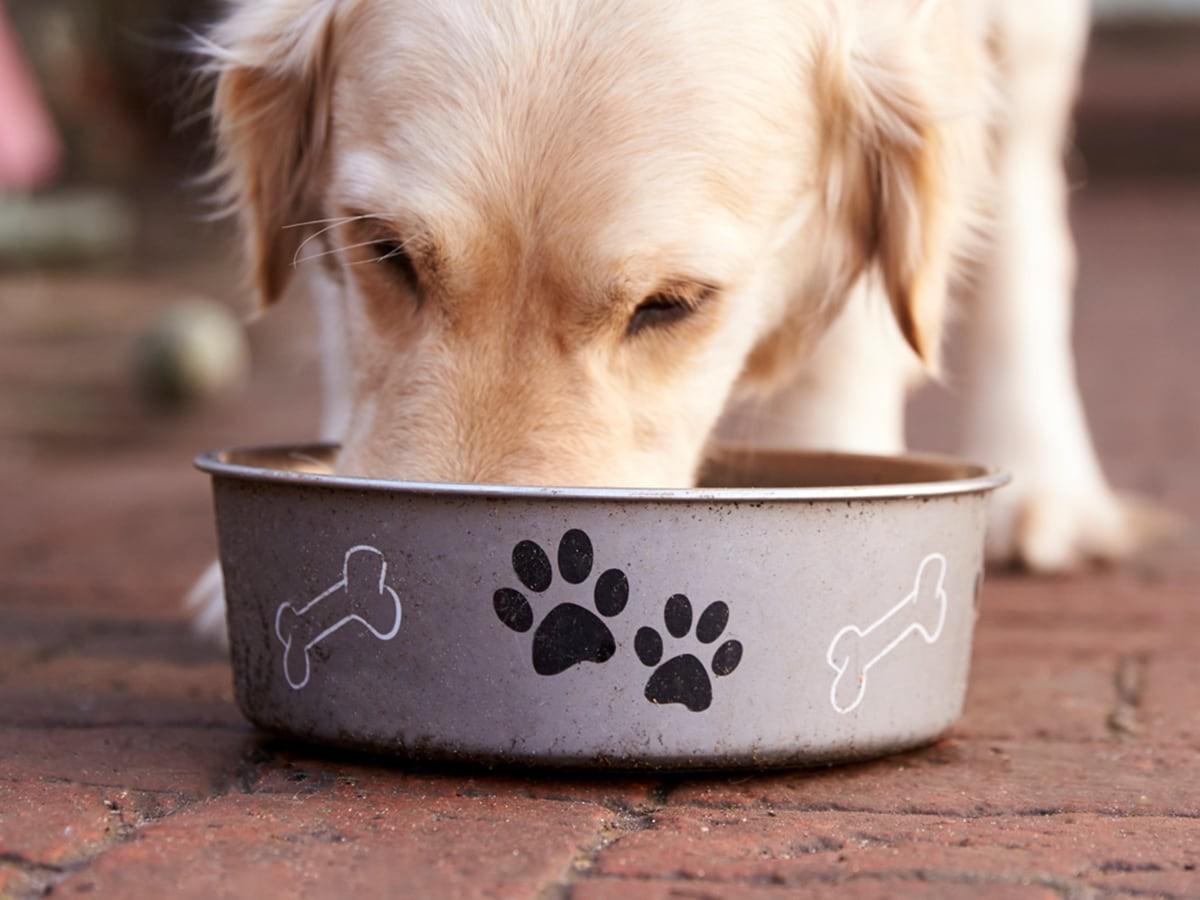When you think of ginger, you likely either think of ginger ale or Asian or Arabic food. Ginger helps aid digestion, so it makes sense to grab the ginger ale when you have an upset stomach. If you like the flavor of ginger, you may wonder if your dog can have it too.
Can Dogs Have Ginger?
You can offer your dog ginger in small amounts. It’s non-toxic, and it’s safe for them to eat. Some dogs can exhibit allergic reactions to ginger, so it’s essential to monitor them if you give them ginger as part of their diet.
Can Dogs Eat Fresh Ginger?
Fresh ginger and ginger root are both safe for dogs. The amount you give a dog is based on its size. Consult your veterinarian to learn how much ginger you can safely offer your dog.
Can Dogs Have Products Made with Ginger?
Most products made with ginger also include a lot of sugar. So, while it won’t be immediately detrimental to your dog, you should also verify that there is no nutmeg in the products. There is also salt in several products that contain ginger.
Things to Know Before You Allow Your Dog to Eat Ginger
Dogs can have allergies to ginger.
A large amount of ginger can lead to issues with digestion.
If your dog has special health conditions, you may need to avoid giving them ginger.
Ways Ginger Can Help Your Dog
Ginger can be helpful for your dogs just as it can be helpful for you. Here are several ways ginger can benefit your pup.
Nausea
Fresh ginger or ginger tea can help with nausea. Studies have compared the effectiveness of ginger to the effectiveness of dimenhydrinate in people and found that ginger had fewer side effects. The anti-nausea effect is because of compounds called gingerol and shogaol.
If you see your dog panting, drooling excessively, smacking its lips, drinking less water, losing its appetite, or presenting odd facial expressions, you might consider giving it ginger to ward off nausea. Sometimes dogs will eat grass if they have an upset stomach. If your car has a tendency to get carsick, offer it ginger approximately 30 minutes before you get in the car for a trip.
Bloating
When your dog’s stomach is full of air and expands, it’s called bloating. The pressure from food, fluid, and air builds up to the point your dog’s stomach expands putting pressure on other areas of the body. If bloating isn’t handled, it can become life threatening for your pet.
Ginger may help at the earliest stages of bloating. Ginger can stimulate stomach contents causing them to move and work their way out of the stomach quicker to prevent bloating.
Flatulence
If your dog has been passing gas, or acts like he needs to pass gas, ginger can help. Giving him ginger can help to prevent gas buildup. It can also help your dog expel the gas in its digestive tract.
Arthritis
Arthritis is caused by inflammation, and ginger is an anti-inflammatory. Adding ginger to your dog’s diet can help alleviate the symptoms of arthritis.
Cancer
Ginger has shown some promise in fighting cancer in animals. Inflammation plays a role in cancer development, so ginger can help to prevent the inflammation that can lead to cancer. Why? Because ginger is an immune booster and an anti-inflammatory.
Ginger also eases nausea which can help with the side effects of cancer treatments in your dog. Ginger can also reduce vomiting in dogs on chemotherapy.
Heartworm
Heartworm can lead to organ damage, lung disease, heart failure, or even death in your dog. Conventional treatments for heartworm are full of neurotoxic chemicals that can be harmful to your dog. Preventative medicines don’t actually prevent heartworm infection, but rather they kill larvae before they become adult worms
A more holistic approach could be giving your dog ginger. Studies show that injections of alcohol extracts of ginger root reduce microfilaria in heartworm infected dogs.
Can Dogs Have the Following Vegetables?
Many vegetables are good food for dogs. Bell peppers, broccoli, carrots, and lettuce are good to feed your dogs. Cauliflower, cucumber, and celery are also good choices. Pickles are an occasional treat only.
Asparagus is okay, but nutrients are depleted when you cook it and raw asparagus is too hard to chew, so there are better choices than asparagus. Onions and other aromatic vegetables should be avoided because they cause low iron levels and can cause harm to the dog’s kidneys.
Can Dogs Eat These Fruits?
Some fruits like bananas, melons, cantaloupe, and dates are full of nutrients, but they also have a high sugar content. Oranges, kiwi, and apples have vitamin C in them. Blueberries have immune boosting antioxidants, and pumpkin is good for digestion.
The fruit of the papaya is good for your dog if you cut it into bite-sized pieces. However, the seeds, and the seeds of a cherry have cyanide in them. That’s why your dog doesn’t need cherries.
Can Dogs Have Seafood?
Seafood is generally okay for your dog. Salmon is included in many dog foods because it provides an immunity boosting source of Omega 3s. Canned tuna is okay in moderation provided you have tuna packed in water and not packed in oil.
If you’ve seen dogs on the beach go after seaweed, don’t allow your dog to eat the raw seaweed on the beach. They can have seaweed snacks that don’t have garlic, onion, or salt in them. Shrimp, crab, and lobster should only be given in moderation with veterinarian approval.
Can Dogs Eat Beans?
Garbanzo beans are an ingredient in many “grain free” dog foods. You’ll see them listed as chickpeas. They add a substantial amount of fiber and protein to your dog’s diet. Black beans, limas, and pintos are full of protein and other nutrients as well, but dogs tend to be gassy after eating them. One of the best beans for your dog is green beans because they are full of fiber, iron, and other nutrients while being low in calorie.
Can Dogs Have Dry Fruit and Nuts?
Pistachios are packed with B6 making them great for brain health. Cashews are also safe for dogs unless your dog is allergic to them. Almonds, on the other hand, aren’t easily digested, so they should be avoided. Raisins are also to be avoided because they are detrimental to your dog’s kidney function.
The Takeaway
Ginger has health benefits for both humans and dogs. It can be helpful to dogs that are experiencing digestive issues. However, too much ginger can also call indigestion.
The dog could exhibit an allergic reaction to ginger. Also, dogs with existing health problems could have issues with eating ginger. Check with your veterinarian before introducing something new to your pet’s diet.

Creative manager by day, pet enthusiast all the time! After 19 years with my dog (hopefully he wins the award for oldest pet in the world), I enjoy spending my days brainstorming tail-wagging content, and sniffing out the latest trends in the pet world.
Shiffer, Emily. "Can Dogs Have Ginger?" Great Pet Care, 18 May 2023, https://www.greatpetcare.com/dog-nutrition/can-dogs-have-ginger/.
"Can Dogs Eat Ginger?" MasterClass, 22 Mar. 2022, https://www.masterclass.com/articles/can-dogs-eat-ginger.
AKC Staff. "Fruits and Vegetables Dogs Can or Can't Eat." American Kennel Club, 15 Oct. 2025, https://www.akc.org/expert-advice/nutrition/fruits-vegetables-dogs-can-and-cant-eat/.
The information presented in this article is for educational and informational purposes only and does not constitute or substitute for the advice of your veterinarian.












